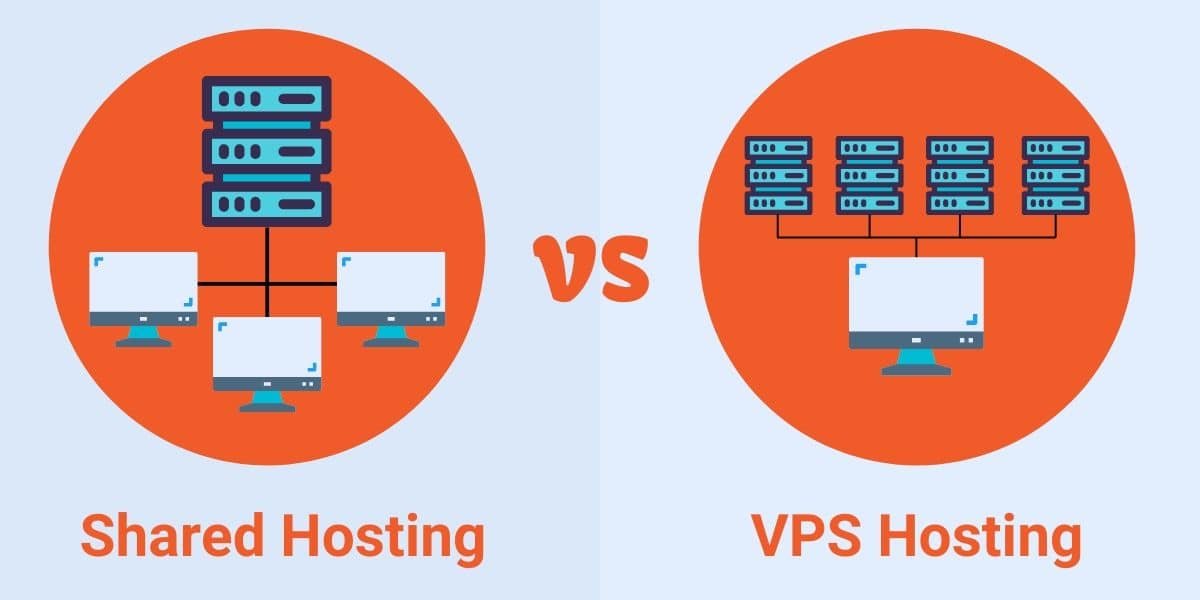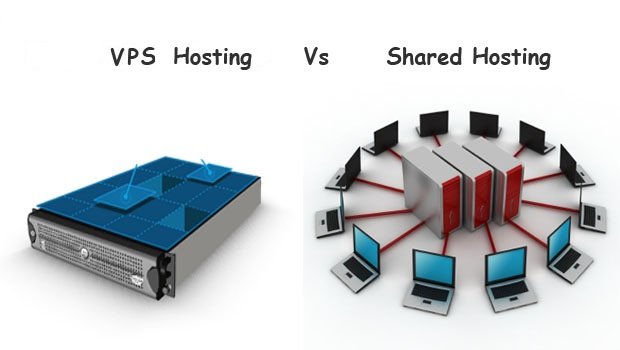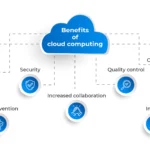Shared Hosting vs VPS Hosting: Which is Right for You?
Choosing the right web hosting provider is a critical decision for anyone looking to launch or maintain a website. The performance, security, and overall success of your site depend on the quality of your web hosting. Whether you’re a blogger, small business owner, or launching an e-commerce store, selecting the right hosting plan can make all the difference.
With so many hosting providers and plans available, it can be overwhelming to make the right choice. This guide will walk you through the factors to consider when choosing the best web hosting for your website.
1. Understand Your Website’s Needs
Before selecting a hosting provider, it’s essential to understand your website’s needs. Consider factors such as:
- Website Type: Are you running a simple blog, a business site, or an online store? Different websites have different resource requirements. For instance, an e-commerce site may need more powerful hosting compared to a personal blog.
- Traffic Volume: Estimate how much traffic you expect your website to receive. A website with heavy traffic may require a more robust hosting solution, like VPS or dedicated hosting, while smaller websites can usually get by with shared hosting.
- Future Growth: Consider the future growth of your website. If you expect a spike in traffic or plan to add more features, make sure your hosting provider can accommodate that growth with scalable options.
2. Consider the Different Types of Hosting
Web hosting comes in several forms, each offering varying levels of control, resources, and performance. The most common types of hosting are:
- Shared Hosting: This is the most affordable hosting option. Your website shares server resources with other websites. It’s ideal for small websites or blogs with low to moderate traffic. However, shared hosting can lead to slower performance if other sites on the server experience high traffic.
- VPS (Virtual Private Server) Hosting: VPS hosting offers more dedicated resources compared to shared hosting. While your website still shares a physical server with other sites, you have a set amount of resources (CPU, RAM, bandwidth). This option is better for websites that have outgrown shared hosting but don’t yet need a dedicated server.
- Dedicated Hosting: Dedicated hosting provides an entire physical server dedicated to your website. This is ideal for large websites or businesses with high traffic, as it offers complete control over the server and maximum performance.
- Cloud Hosting: Cloud hosting uses a network of servers to host your website. It offers scalability, reliability, and high performance. Cloud hosting is a great choice for websites expecting fluctuating traffic or rapid growth.
- Managed WordPress Hosting: If you are using WordPress to power your website, managed WordPress hosting can offer a hassle-free experience. The hosting provider manages the technical aspects of running a WordPress site, including updates, security, and backups.

3. Evaluate Performance and Reliability
Website speed and uptime are crucial factors for a successful online presence. Slow-loading websites can lead to higher bounce rates, and frequent downtime can harm your website’s reputation and SEO rankings.
- Uptime Guarantee: Look for a hosting provider that offers an uptime guarantee of 99.9% or higher. This ensures that your website will be accessible most of the time, reducing the chances of downtime.
- Speed and Performance: Website speed is another key factor for user experience. Choose a hosting provider that has fast servers, good performance optimization features, and a Content Delivery Network (CDN) for faster loading times across the globe.
4. Check for Security Features
Security should always be a top priority when selecting a hosting provider. A security breach could lead to downtime, data loss, or damage to your website’s reputation.
- SSL Certificates: Look for hosting providers that offer free SSL certificates, which encrypt data between your website and visitors. SSL is especially important for e-commerce sites and any site that handles sensitive information.
- Backup and Recovery: Ensure your hosting provider offers automatic backups and an easy recovery process. This is important in case of data loss due to an attack or technical issue.
- Firewall and Malware Protection: Many hosting providers offer firewalls and malware scanning to protect your website from malicious attacks.
5. Customer Support
Good customer support is essential for resolving issues quickly and efficiently. Choose a hosting provider that offers 24/7 support via phone, live chat, or email. Ideally, you should look for a provider with a reputation for fast and helpful customer service.
- Support Channels: Ensure that the hosting provider offers multiple ways to reach customer support, including chat, phone, and email.
- Knowledge Base: A comprehensive knowledge base or FAQ section can be helpful if you prefer to troubleshoot issues on your own.
6. Assess Scalability Options
As your website grows, your hosting needs may change. It’s important to select a hosting provider that offers scalability, so you can upgrade your plan as your traffic or resource requirements increase.
Look for hosting providers that make it easy to upgrade from shared hosting to VPS or dedicated hosting. Cloud hosting is naturally scalable, so if you anticipate rapid growth, this might be a good option to consider.
7. Review Pricing and Renewal Rates
When comparing hosting providers, it’s crucial to evaluate not only the initial pricing but also the renewal rates. Some providers may offer an attractive low price at first, but the renewal rates can be significantly higher. Always check the pricing for both the initial term and renewal period.
- Free Domain and Add-ons: Some hosting providers offer free domain registration or other services (e.g., email hosting) for the first year. Consider these benefits when comparing pricing.
- Money-Back Guarantee: Look for hosting providers that offer a 30-day or longer money-back guarantee. This allows you to test the service without commitment and get a refund if it doesn’t meet your expectations.
8. Read Reviews and Testimonials
Finally, one of the best ways to gauge the quality of a hosting provider is to read reviews from other customers. Look for reviews on independent websites, forums, or the provider’s own website. Pay attention to both positive and negative reviews to get a balanced perspective.
Conclusion
Choosing the best web hosting provider for your website is an important decision that can affect your site’s performance, security, and user experience. By considering your website’s needs, evaluating the different types of hosting, and checking for reliability, security, support, and scalability, you can make an informed decision that will ensure your website runs smoothly and successfully.



